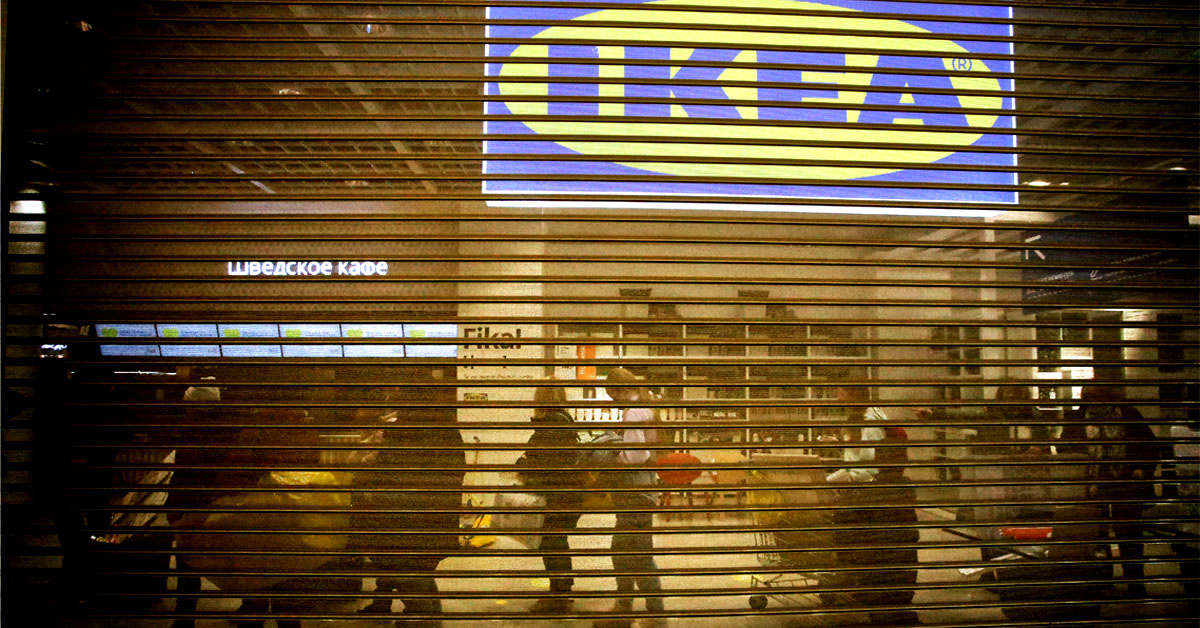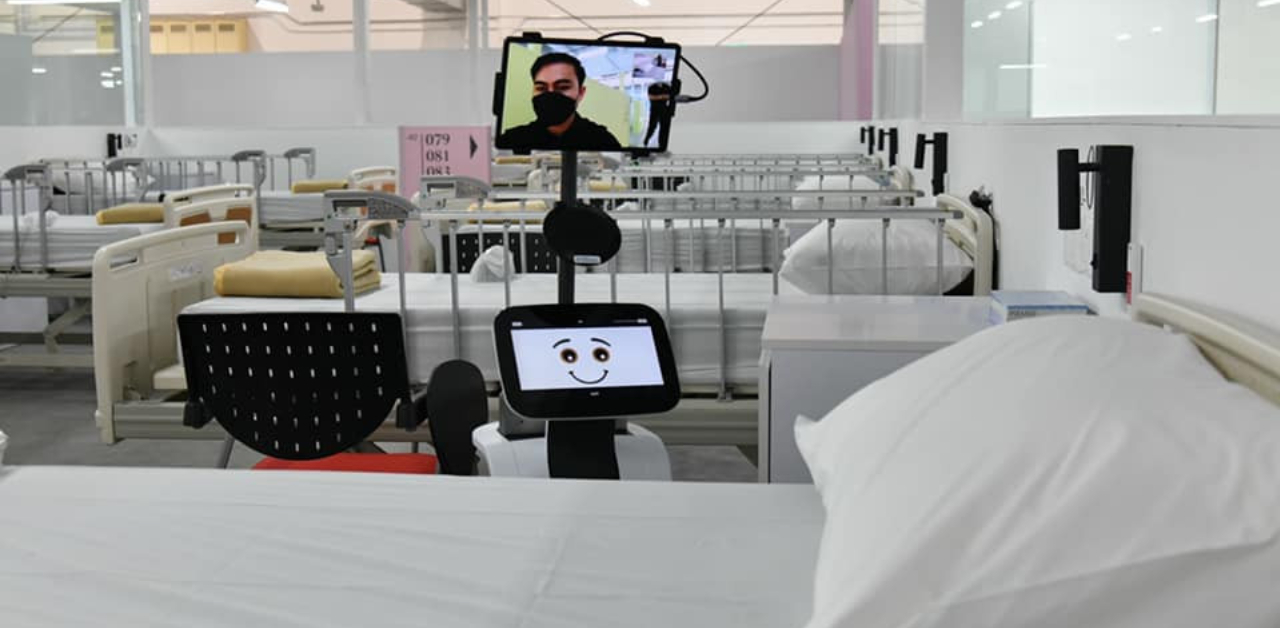In a press release on Thursday (3 March), Ingka Group, the owner of biggest global furniture brand IKEA, announced that it will temporarily suspend its business in Russia and Belarus.
Crowds Sighted in IKEA Stores
After IKEA announced that it would be temporarily closing all 17 retail stores across Russia, it has led to long queues and crowds at the furniture outlets.
massive rush to ikea after announcement it’s suspending operations in russia pic.twitter.com/LVXnqZ1xA6
— ian bremmer (@ianbremmer) March 3, 2022
Russians could be seen making last-minute purchases and hoarding products, almost as if it was a clearance sale with discounted prices.
Maybe IKEA timber is cheaper and longer lasting to keep the fires burning in Russia, who knows?
It’s pure havoc in all 17 furniture outlets, in any case.
According to Reuters, Russia is the global furniture giant’s tenth biggest market, such that it raked in €1.6 billion (S$2.39 billion) of retail sales in August 2021.
That is equivalent to 4% of IKEA’s total retail sales.
Reasons Behind the Temporary Closure
In a joint statement by Ingka Group and Inter IKEA, they stated that the Russo-Ukrainian War had caused a huge impact that has caused severe disruptions in the supply chain and trading conditions.
This was announced alongside the fact that furniture prices are expected to rise by an average of 12% this year, as opposed to previously projected 9%, due to the soaring costs of raw materials and supply chain disruptions.
For the Russian IKEA Outlets, the majority of its chipboard and wood-based products are produced at three sites, and it has 50 direct suppliers in the country to produce its wide range of goods.
Most of the products made in Russia are sold in Russia.
Products made from Russia are scarcely exported outside the country, only making up about 0.5% of IKEA’s products.
On the other hand, Belarus mainly functions as a sourcing market for IKEA, where they obtain their supply of wood, mattresses, and sofas, and then sell it to Russia.
Inter IKEA Core Business Supply Manager Henrik Elm stated that the decision to close the stores in Belarus as well, was made before the European Union’s decision on Wednesday (2 March) to impose new sanctions against Belarus for its supporting role in Russia’s invasion of Ukraine.
“We couldn’t offer safety and security of people working in our supply chain – passing the border, et cetera, was simply too risky. Then, on top of that, the consequences of different sanctions altogether made it simply not possible to operate any longer,” Elm said.
Besides that, Ingka Group and Inter IKEA have voiced their “deepest empathy and concerns” towards the millions of people that were affected by the devastating war in Ukraine.
In summary, these are the reasons for the temporary closure of IKEA in the two countries:
- Serious disruptions in the supply chains
- Hostile external conditions that make trading risky
- Inability to ensure the safety and security of workers
- The imposed sanctions aggravating the first factor
- Western businesses pulling out in condemnation of Russia’s actions
Assistance From IKEA and Its Associated Companies
Although the Ingka Group has decided to cease operations for its furniture stores, it isn’t completely leaving Russia to the grime and ashes of war.
Ingka Group is also the parent company of one of the world’s biggest shopping centres called “MEGA”, and it has 14 malls built across Russia.
The Ingka Group reassures its customers that the malls will still be open for business.
As for the 15,000 employees that will be affected by the temporary closure, the Ingka Group Retail operations Manager Tolga Oncu declared that all of their staff will still receive their salary, in rubles, for the next three months at least.
The IKEA Foundation, funded by Ingka Foundation, also announced on the same day that it will be donating €20 million (S$29 million) towards humanitarian efforts for those who have been abruptly displaced because of the war waging in Ukraine.
This is on top of €10 million (S$14 million) worth of products and other forms of assistance that the Inter IKEA Group and Ingka Group has already contributed to each organisation: namely the United Nations Refugee Agency (UNHCR), Save the Children, and other non-profit organisations working in the local market.
Not the First to Leave Russia
As previously mentioned, one of the reasons that drove the Swedish furniture giant IKEA to pull out from Russia is to censure the Kremlin government for invading Ukraine.
Cutting ties and avoiding the hotspot of the unfolding crisis is one of those ways.
Of course, it isn’t conducive to run businesses in warzones either.
Reducing the exports flowing into the country, desisting operations in Russian-based factories and stores, thereby reducing the general supply of goods and services plus causing the rate of unemployment to shoot up…
…they are akin to pin pricks into the Russian economy; small and stinging at first, but the holes will gradually widen and hurt in the long term.
Shortening supply in the face of unwavering demand will cause costs of goods and services to rise, while the ruble is devaluing fast on the international currency exchange, to say nothing of the Russian stock market.
Things will only spiral and become worse for the Russian people, qualitatively and quantitatively speaking.
Apart from IKEA, other American companies like Nike, Apple, H&M, and Disney have already pulled away from Russia.
However, IKEA is the first to halt business with Russian ally Belarus, and it’s highly likely it won’t be the last.
Whatever treatment Russia has been getting, its allies are bound to receive a piece of it too.
Read Also:
- Russian Cats Now Banned in ‘United Nations of Cat Federation’
- Woman from S’pore Reportedly Dies After Being Denied Treatment During Holiday in Europe
- Nuclear Plant in Ukraine Now Safe After Russia’s Attack; Biden Urges Russia to Cease Military Activities As Well
- French President After Call With Putin: The Worst is to Come & Putin Intends to Seize the Whole of Ukraine
Featured Image: Shutterstock / Onishchenko Natalya



